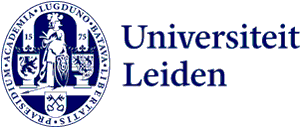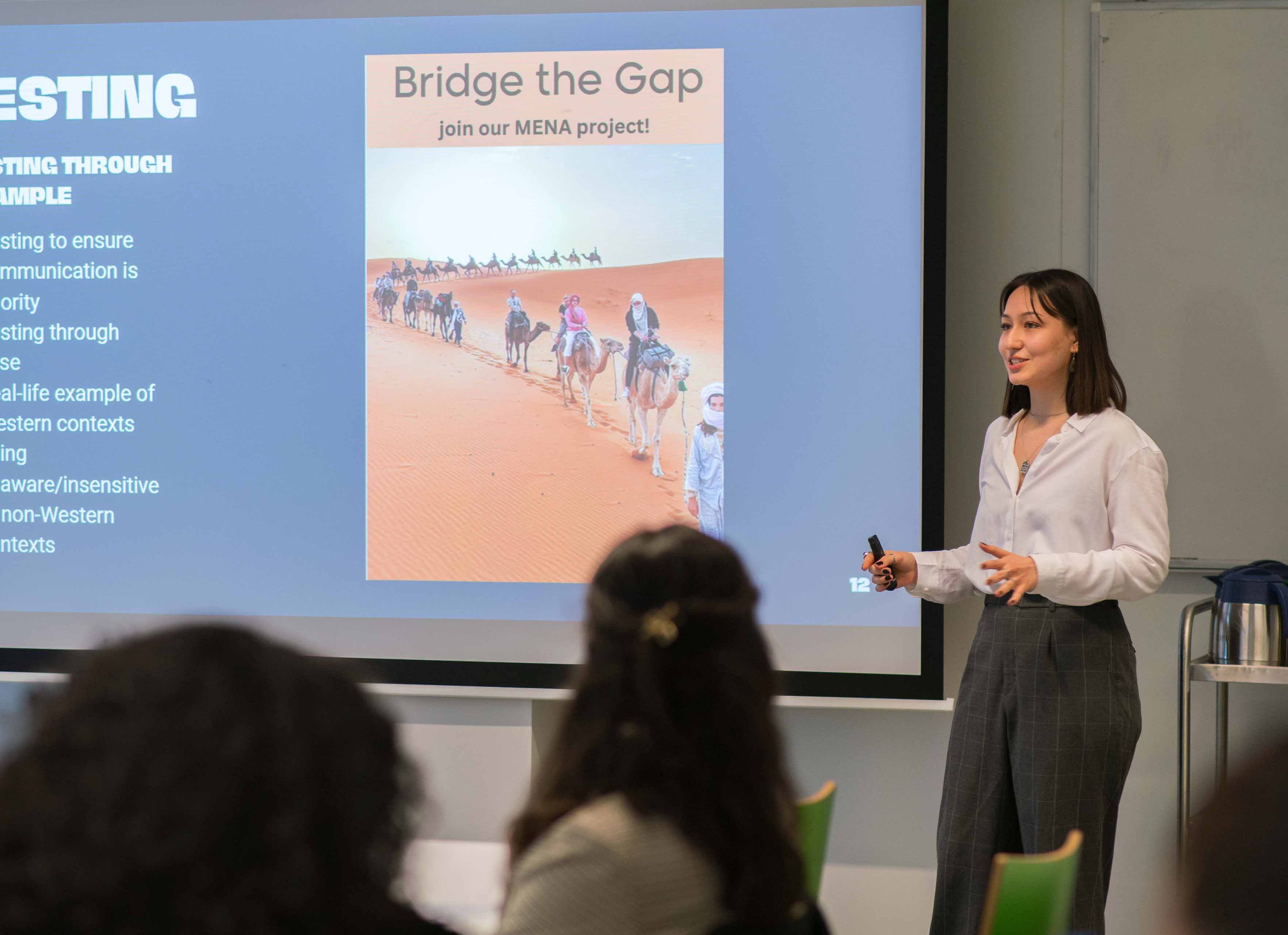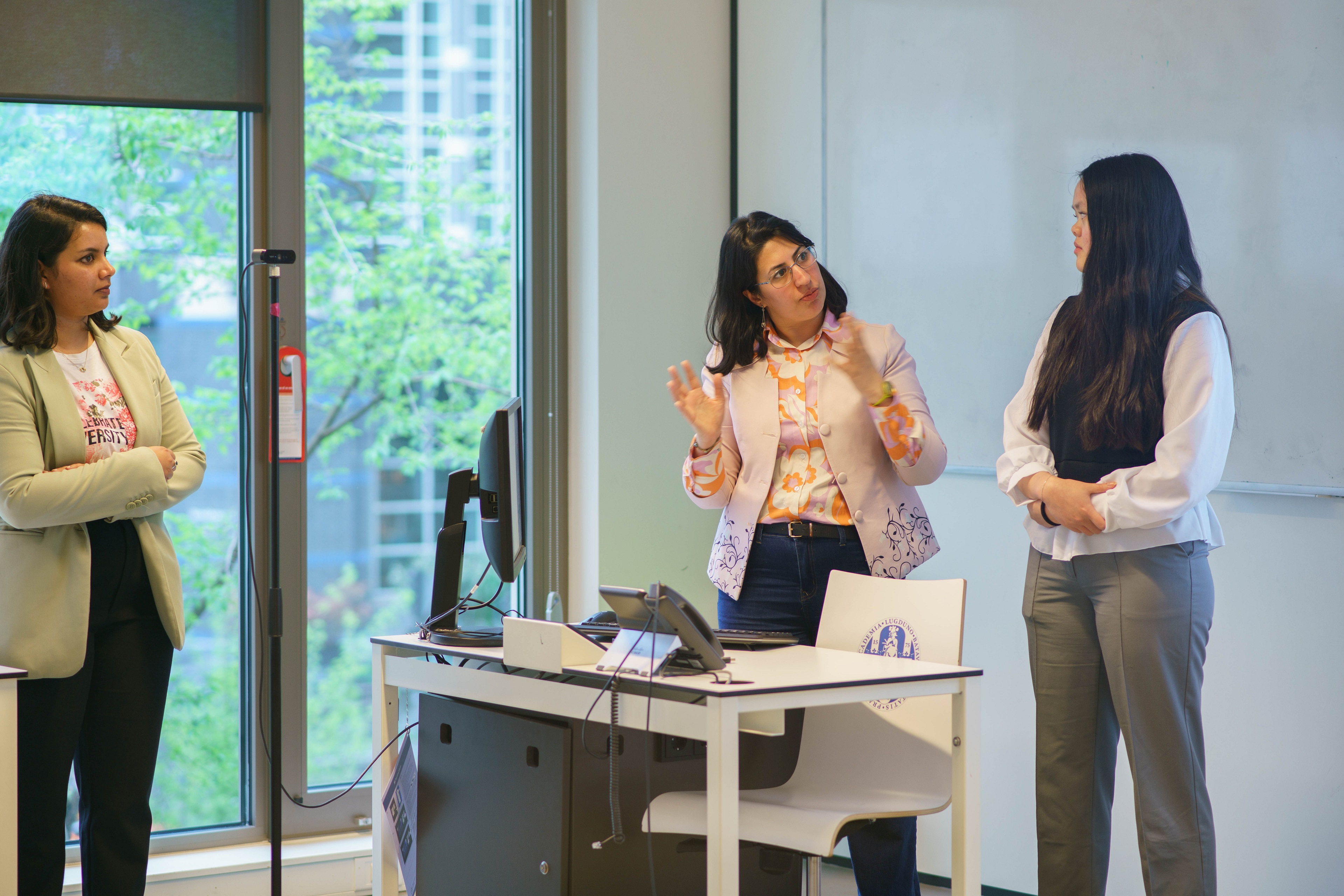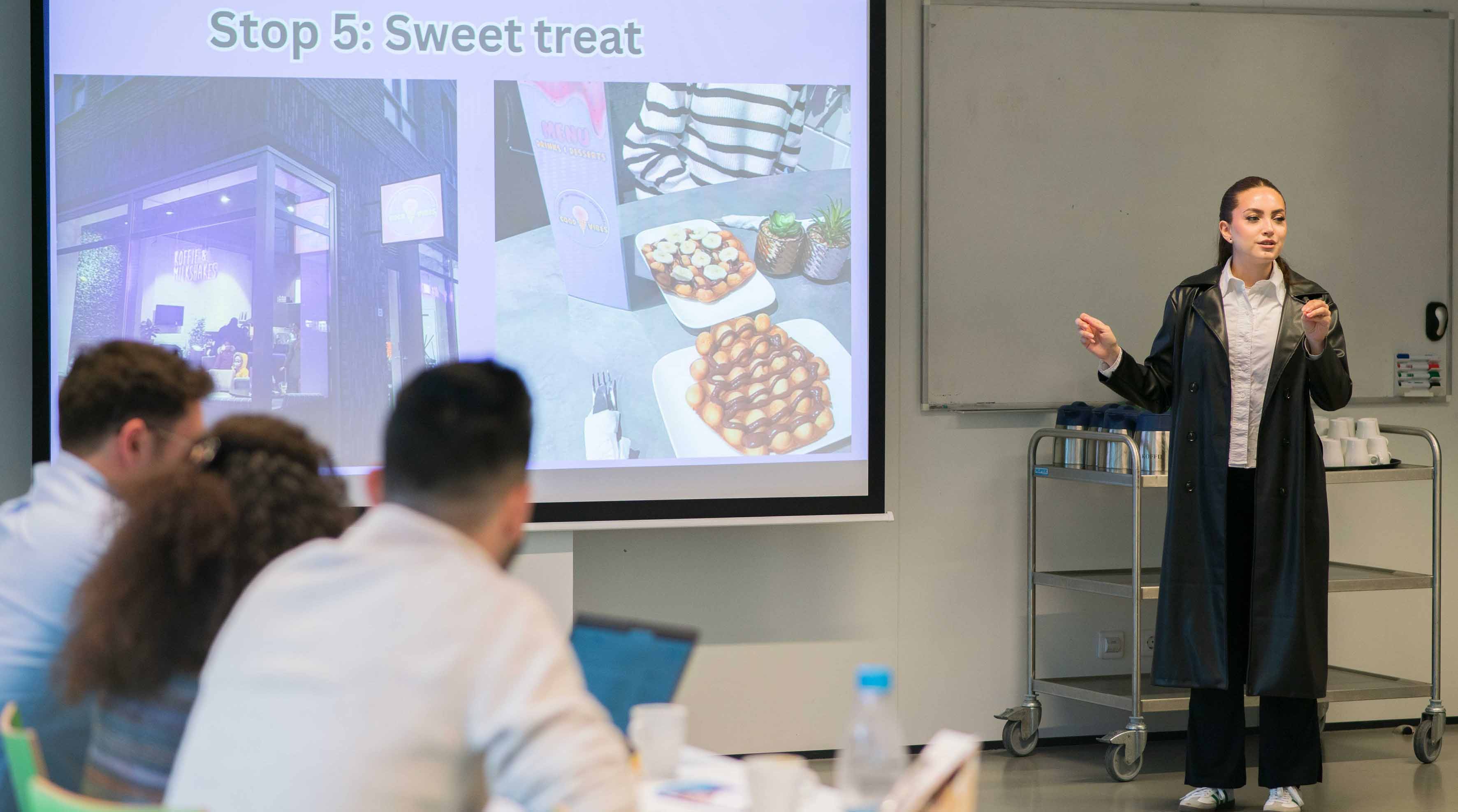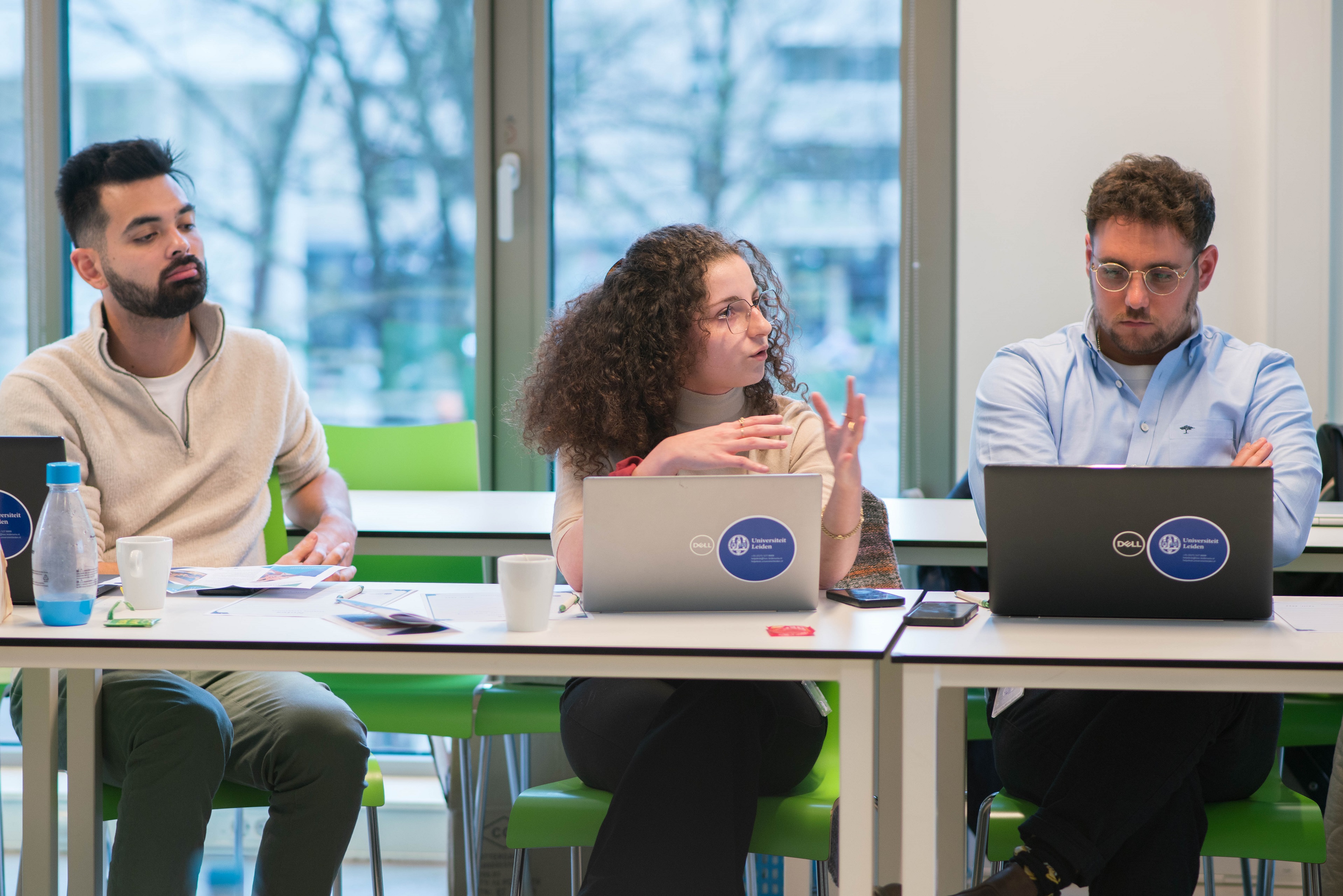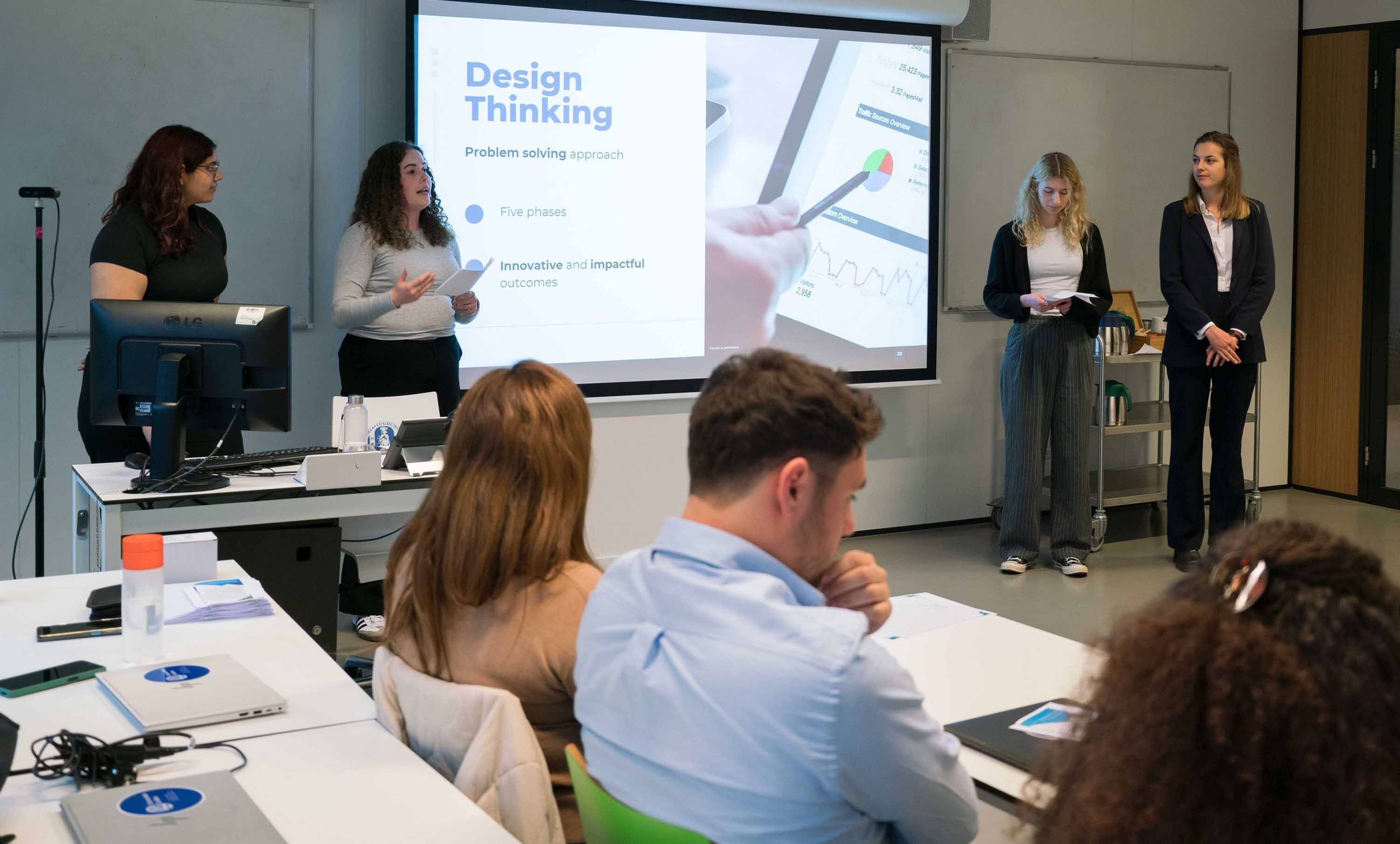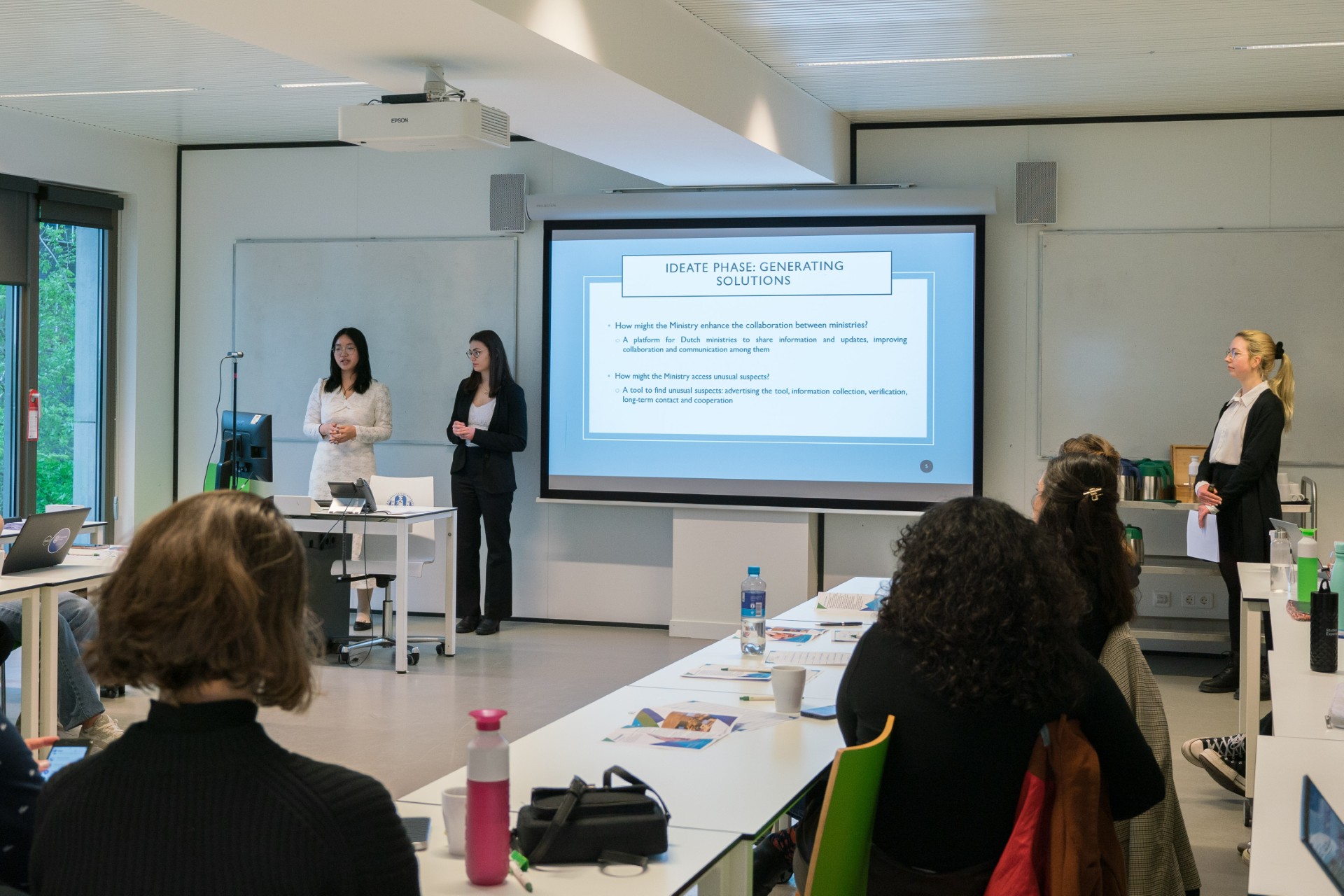
Cycling away from inequality
A bike tour is probably not the first thing that comes to mind when thinking about inequality. However, students of a Master Honours Challenge came up with this and other solutions to tackle local inequalities. Creativity and empathy turned out to be useful ingredients.
Real-life challenges
In the Master Honours Challenge Tackling Inequalities students are encouraged to investigate and learn about different themes of inequality, such as gender inequality, social-economic imbalances, and many more. Alongside this theoretical part, students take on real-life problems of stakeholders and design solutions, such as ensuring equal chances of being promoted and improving the participation of citizens that are hard to reach. Tonight, the honours students present their final projects to the stakeholders.
Local community
Change can be made in the smallest corners - more specifically, the small corners of the Hague. One group addressed the negative image of a neighbourhood in the Hague. They created a walk/bike tour of some local hotspots. The group presents the route and explains its impact. ‘The stops enable engagement with the local community and support small businesses.’
Farah, master's student in political sciences, enjoyed working on this project. ‘Creating this tour changed my preconceived views. When I came there, it was just a calm and clean neighbourhood. Hopefully, more people will see that.’ Overall, she’s grateful for her experience. ‘This is a very impactful, eye-opening course. It taught me that creativity is valuable in everyday-life, especially when approaching challenges like these.’
The power of empathy
Aya Ezawa is diversity officer at the Diversity and Inclusion Expertise Office of the university. During the course, Aya gave an interactive guest lecture. Tonight, she’s back as one of the stakeholders. Students collaborating with Aya designed a prototype for a walk-and-talk to foster the conversation about the university’s past colonial relations. ‘It’s a safe space to ask questions, without having to be an expert’, explains one of the students.
The walk-and-talk should lower the threshold to join the conversation. Aya is pleased with the work of the students. ‘I’m impressed with the broad audience the group was able to reach – including those who find it a complex topic, so not just the usual suspects. They were empathetic, and knew how to connect with students with very different perspectives’, Aya noticed.
Proud
Teachers Niloufar Daneshkhah and Aayushi Shah end the meeting with a hearty applause for the students. Additionally, they surprise everyone with a small thanking gift. ‘We are very pleased with the end products. It’s amazing to see what students were able to achieve. We’re incredibly proud and are already looking forward to teaching this course again next year.’
Text: Lin Kokshoorn
Photography: Nesie Wang

